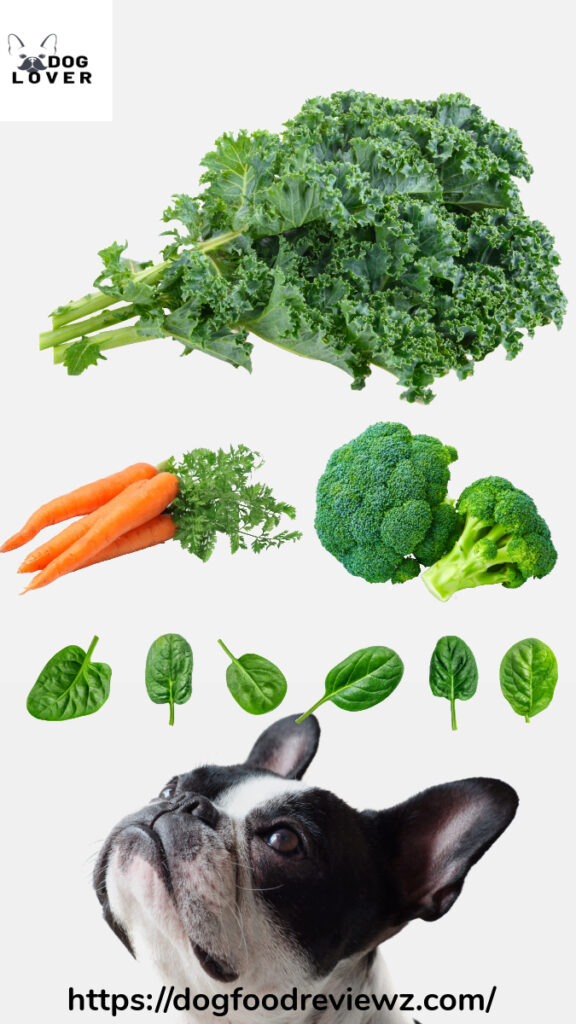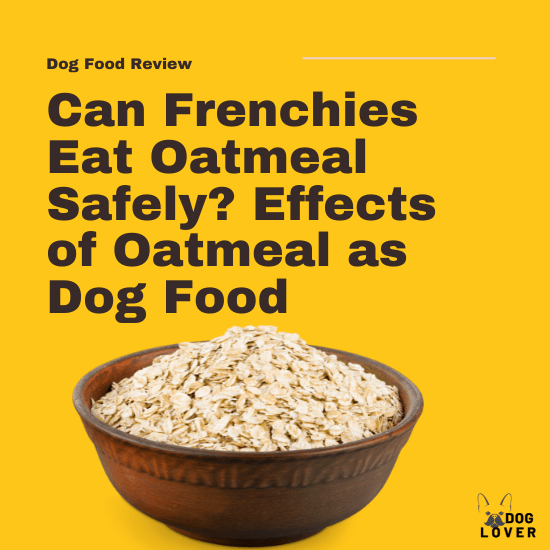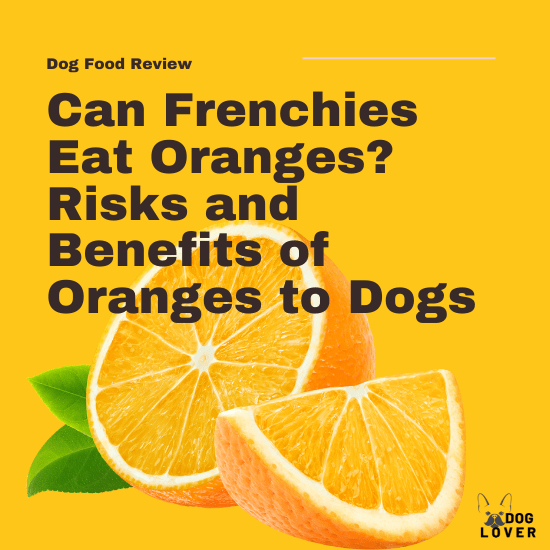What vegetables can Frenchies eat?
Vegetables are undoubtedly a crucial and beneficial part of the human diet.
But, can dogs reap the same benefits from vegetables?
Definitely yes, when given in moderation, vegetables are a great way of keeping your dog healthy. They are loaded with tons of vitamins, antioxidants, minerals, phytonutrients, and enzymes that contribute to the overall health of dogs.
However, not all vegetables are safe for Frenchies. It’s thus important for you as a pet parent to identify which foods are safe and unsafe for feeding your dog.
So, what vegetables can Frenchies eat?
Here is a list of some of the dog-friendly vegetables that you can incorporate into your dog’s diet. While these are safe for dogs to consume, they should be fed in moderation and never make up more than 10% of the total daily calories for dogs.
Kale
Kale is considered a superfood that’s loaded with nutrients and offers tons of benefits not only for humans but to canines as well. This vegetable makes a perfect low-calorie treat that’s especially useful for dogs struggling with weight issues. Kale can help improve vision, fight off diseases and infections, and reduce inflammation, among other benefits
Can Frenchies eat kale safely?
Yes, kale is safe for dogs to consume in small amounts without negatively impacting their health. This vegetable is not toxic and is unlikely to cause any harm to dogs provided it’s given plain without any seasonings.
The following are some of the benefits of kale for dogs:
- This cruciferous vegetable is specifically rich in antioxidants including vitamin C, lutein, and zeaxanthin which help combat oxidative damage to body cells, reverse the aging process, boost immunity, and fight diseases like cancer.
- It also contains vitamins A, C, and K which are important for healthy vision, improved immunity system, enhanced wound healing, and improved blood clotting.
- Kale has minerals like iron, calcium, potassium, and manganese which help boost blood production and prevent anemia, the building of strong bones, and proper organ functioning.
- It’s rich in fiber, which aids digestion and improves colon and bowel health.
However, kale also contains some toxic compounds like thallium, oxalates, and isothiocyanates which in large amounts can cause health problems for dogs.

Spinach
Spinach is a leafy green vegetable that’s high in nutrients such as soluble and insoluble fiber, vitamins, minerals, and antioxidants. Just like kale, spinach is considered a superfood due to its high doses of nutrients.
Can Frenchies eat spinach safely?
Yes, Frenchies can eat spinach safely. Since it’s loaded with nutrients, spinach can make a healthy addition to your dog’s diet. All parts of spinach are non-toxic and perfectly edible to dogs.
Feeding spinach to dogs can offer the following benefits:
- It has both soluble and insoluble fiber which not only lowers bad cholesterol in a dog’s body and regulates blood sugars but also feeds the good bacteria in the gut. This aids digestion and improves stool quality.
- Spinach is high in antioxidants that help in fighting infections, stopping oxidative damage to body cells, and improving immunity.
- It can help fight cancer with its combination of vitamins, phytonutrients, antioxidants, and omega-3 fatty acids.
However, spinach is high in oxalates which can cause bladder stones or kidney damage to dogs. It also has a sodium level and fiber content, which can cause stomach upset and kidney problems if consumed in large amounts. Spinach should therefore be fed in moderation for maximum benefits.
Carrots
Carrots are a health powerhouse for humans, but can you share these carrots treats safely? Let’s find out together.
Can Frenchies eat carrots safely?
Yes, carrots are perfectly safe for dogs to consume. In fact, carrots are not only delicious but also packed with important nutrients, making them healthy snacks for dogs.
Some of the most important nutrients and benefits of carrots for dogs include:
- Beta-carotene: This is a precursor of vitamin A which is essential for improved vision in dogs. Beta-carotene is also a powerful antioxidant helping to fight diseases, prevent cancer, maintain good reproductive health, and ensure proper bone health.
- Dietary fiber: These vegetables are packed with soluble fiber, which aids digestion and regulates bowel movement in dogs.
- Biotin: This helps protect dogs against skin irritation and thus helps maintain healthy skin and coat in dogs.
- Vitamins A and C: These act as powerful antioxidants that help fight diseases, combat oxidative damage, reverse the aging process, and boost immunity.
- Improved dental health: Chewing carrots can help clean your dog’s teeth and prevent plaque build-up, which improves its oral health.
- Weight management: Carrots are low in calories and fats, making them ideal for dogs looking to shed some pounds.
However, like any other good thing, carrots should be fed in moderation to avoid causing stomach upset including vomiting and diarrhea in dogs.
Green Beans
Green beans are not only delicious, but also healthy. These are among the foods that are considered safe for dogs. They contain minerals, vitamins, fiber, and other nutrients which can support the health of dogs.
Can Frenchies eat green beans safely?
Absolutely! Whether cooked or raw, green beans are safe for Frenchies to eat provided they are cooked plain without any seasonings, oils, or other potentially harmful additives. These nutrient-dense vegetables can offer a number of benefits if fed properly and in the right amounts.
Green beans are high in vitamins A, B6, C, and K which are important for immune health, eye health, and better reproductive health. These vegetables also contain important minerals including potassium, phosphorus, calcium, and manganese. These play useful roles in blood formation, wound healing, as well as supporting bone, kidney, and heart health.
Besides being low in calories, green beans are also high in dietary fiber, making them ideal for weight management. They keep dogs satiated for longer, minimizing their need to eat and controlling their appetite, which helps them maintain their ideal weight.
However, feeding green beans in large amounts can lead to gassiness and stomach upset due to their high fiber content. They also pose a choking risk to dogs if fed without cutting them into small pieces.
Broccoli
Broccoli is chock-full of various essential nutrients that are beneficial to humans and canines alike. If fed in the right way and amount, broccoli makes an excellent treat for dogs or a healthy addition to a dog’s diet.
Can Frenchies eat broccoli safely?
Yes, Frenchies can eat both raw and cooked broccoli safely provided they are prepared without any seasonings, oils, or other additives that may be harmful to dogs. They should also be given in moderation for maximum benefits.
Feeding broccoli has the following benefits for dogs:
- It’s packed with multiple vitamins including vitamins A, C, D, E, and K which support healthy skin and coat, improve blood clotting, promote bone health and density, and enhance immune health.
- Broccoli is high in fiber, which is helpful for digestion and weight management
- It’s rich in lutein and other powerful antioxidants, which supports eye and heart health as well as curb inflammation
- It’s loaded with folic acid that assists in the building and maintaining healthy cells.
- It contains minerals like magnesium, sodium, potassium, and chromium that help build and maintain healthy bones and muscles, and support nervous system health.
However, broccoli florets contain isothiocyanates which can cause severe gastric irritation if consumed in large amounts. Broccoli stalks also pose a choking risk to dogs if fed whole. You should thus cut this vegetable into small pieces before feeding it to dogs.
Beets
Provided they are given in moderation, beets are a healthy addition to a dog’s diet. These vegetables have undeniable health benefits as they are low in calories but jam-packed with essential nutrients that can help a dog lead a happy and long happy.
Can Frenchies eat beets safely?
Yes, beets are safe for Frenchies to eat provided they are given in moderation.
Beets are rich in iron which is important for dogs, especially, anemic dogs. It helps promote the production of blood as well as transporting oxygen to the blood cells of dogs.
They’re also high in vitamins and minerals that play various roles in the health of dogs including boosting the immune system health, regulating and maintaining a balanced body fluid PH, and improving skin and coat health.
Beets are loaded with fiber, which aids the digestive system and gut health. It helps in bulking up dogs’ stool and improving stool quality and regularizing bowel movements.
However, feeding beets has some potential risks, which include:
- High sugar content: These vegetables are high in sugar which can cause diabetes, obesity, tooth decay, and other health issues.
- Has oxalates: These can lead to kidney or bladder stones if ingested in high amounts
- High amounts of fiber: Too much fiber can lead to gastrointestinal upset, including vomiting and diarrhea in large amounts.
Celery
Celery can be a healthy snack that can offer dogs a variety of nutritional benefits when fed in the right manner.
Can Frenchies eat celery safely?
Yes, it is not only safe, but also healthy for dogs to eat. This vegetable is low in calories, which makes it an excellent treat for dogs struggling with weight issues. It offers them a crunchy and satisfying snack without packing extra calories.
Celery also has a high water content, making it useful for keeping dogs well hydrated and enhancing the absorption of nutrients. This is particularly useful for dogs that don’t like taking water.
Other benefits of celery for dogs include:
- Contains vitamin A and C which support the immune system, reproductive health, healthy vision, bone strength, and density, as well as improved blood coagulation and clotting.
- Packed with antioxidants that help in minimizing inflammation, fighting off diseases, combating oxidative damage, and slowing down the aging process in dogs.
- It’s rich in minerals like calcium, zinc, iron, and magnesium which are beneficial for bone health, strong immune system, glamorous skin, and coat, as well as protein and fat metabolism. It also contains potassium which is good for kidney health, heart, muscle, and digestive system functioning.
Cucumber
Cucumbers are technically fruits belonging to the same family as melons, squash, and zucchini. These are not only crunchy, but highly nutritious for humans. However, are these fruits cum vegetables safe for our canine friends? Well, let’s find out.
Can Frenchies eat cucumber safely?
Yes, cucumbers are absolutely safe for Frenchies to consume.
Besides their crunchiness which supplies moderate fiber amounts and protects dogs against gastrointestinal sluggishness, cucumbers are also packed with water, making them excellent for keeping dogs hydrated. They are also chock-full of other important nutrients including vitamins, minerals, and antioxidants which contribute to the health of dogs.
Other benefits of cucumbers for dogs include:
- These vegetables are low in fats and calories, making them ideal for weight management
- They are full of antioxidants including vitamin C which protect the body cells of dogs against oxidative damage, boosts immunity, and help dogs fight diseases.
- They contain minerals like potassium, magnesium, zinc, and iron which promote kidney and heart functions, healthy muscle functioning and digestive, bone strength and integrity, as well as supporting protein and fats metabolism and immune system function.
Feeding too many cucumbers can cause gastrointestinal upset in dogs. These vegetables also pose a choking risk if fed to dogs without chopping into small pieces.
Sweet Potatoes
Sweet potatoes are delicious and can make a great treat with an abundance of health benefits to your dog if fed in the right way.
Can Frenchies eat sweet potatoes safely?
Yes, as long as they are given in moderation, sweet potatoes are not only safe but also highly nutritious for dogs.
Sweet potatoes are rich in fiber, which helps the digestive system of dogs flow effectively. A regular intake of fiber helps reduce the risk of heart diseases and some types of cancer.
While they are low in fats, these vegetables are rich in vitamins A, B6, and C, as well as minerals like iron, calcium, and potassium which play vital roles in the general wellness of dogs.
Sweet potatoes should however be fed in moderation as they are high in carbs, which can lead to excessive weight gain and other health problems. They also have a high glycemic index and can thus cause blood sugar spikes, resulting in diabetes if fed in large amounts.
Butternut Squash
Squash is closely related to pumpkin and can thus make a healthy addition to a dog’s diet. This vegetable is full of nutrients including antioxidants, vitamins, and minerals.
Can Frenchies eat butternut squash safely?
Yes, dogs can eat butternut squash safely provided it’s served in moderation. They are high in nutrients, including essential vitamins and minerals.
The benefits of squash include:
- Butternut squash is rich in vitamins A and C. Vitamin A is essential for good eye health, prevents skin problems and hair loss, as well as promotes healthy growth and strong bones. Vitamin C on the other hand is a great antioxidant that’s important in boosting immunity, fighting diseases, improving skin and coat health, as well as slowing down the aging process in dogs.
- Minerals like manganese, phosphorus, and magnesium that are abundant in this vegetable help in enhancing bone strength and health, encouraging protein and carbohydrate breakdown, and promoting vitamin absorption.
- Butternut squash is full of fiber, which is excellent for digestion and maintenance of ideal weight in dogs.
What Vegetables Can’t Dogs Eat?
Not all vegetables are fit for feeding to dogs. The following are some unsafe vegetables for dogs.
- Garlic: Garlic is a member of the allium plant family and thus contains a toxic compound called N-propyl disulfide. This compound causes red cell damage by attaching itself to the red blood cells, interfering with their ability to transport oxygen throughout a dog’s body. This results in hemolytic anemia.
- Corn on the cob: While this is not toxic and has fiber that can help with digestion, it presents a serious risk of choking, intestinal injury, and obstruction to dogs. This is because the corn cobs are made of a material that is hard for dogs to digest. Ingesting a piece of corn cob can cause intestinal blockage, necessitating surgery to remove it.
- Onion: Just like garlic, onion is part of the allium family, which is poisonous to dogs. They contain thiosulfate, which can cause poisoning in dogs. A dog that has consumed onion will show symptoms like lack of energy, dark yellow urine, vomiting, lethargy, and diarrhea. Immediately consult a vet if your dog shows these symptoms.
- Rhubarb: This contains oxalates, an organic substance that can cause kidney stones or nervous system issues in dogs if ingested in small quantities. Taking this vegetable can reduce the calcium content in your dog’s bones.
Health Advantages of Feeding Vegetables to Your Dog?
Including vegetables in your dog’s diet offers many benefits. These include:
- Improved digestion: Vegetables are packed with fiber, which aids digestion and keeps the digestive system flowing smoothly. Fiber is important for bulking up stools and improving bowel movement and stool quality. Fiber also keeps dogs satiated for longer, which helps them maintain a healthy weight.
- Source of hydration: Most vegetables have high water content. Feeding these regularly to dogs can help keep them hydrated. This is especially important for dogs that don’t like drinking water. Water is also important for enhancing the absorption of nutrients in dogs.
- Supplies vitamins and minerals: Vegetables are good sources of vitamins like A, C, B, D, E, and K plus minerals like potassium, phosphorus, magnesium, zinc, and others which play important roles in enhancing the overall wellness of dogs.
- Rich in antioxidants: Vegetables are high in antioxidants which help fight oxidative damage to the body cells, promote immunity, and help dogs fight disease and infections.
Disadvantages of Feeding Vegetables to Your Dog?
While feeding vegetables to dogs is okay, there are some risks attached to it. These include:
- Gastrointestinal upsets: Feeding vegetables in high quantities can lead to gastrointestinal upsets, including diarrhea and vomiting in dogs. This is because they are high in fiber, which although aid digestion, can wreak havoc on the dog’s digestive system.
- Toxic compounds: Vegetables, like the green leafy ones, contain organic compounds like oxalates which can cause health problems in dogs if ingested in large amounts.
- Nutritional inadequacy: Feeding vegetables only as the main diet for dogs is unbalanced and causes nutritional deficiencies in dogs. Thus, vegetables should not make more than 10% of the total calories for dogs.
What are the best dog foods with Vegetables?
Vegetables are not only delicious, but also full of nutrients that can help improve the health of dogs. They are rich in vitamins, minerals, and antioxidants which are critical for the good health of canines. Vegetables offer many benefits if fed in moderation in the right way.
They contain fiber, which aids digestion and improves colon and bowel health. They help bulk up stools, offering relief for dogs with diarrhea. Fiber also plays an important role in the maintenance of ideal weight in dogs. It helps keep dogs feeling fuller for longer, thus minimizing their urge to eat.
Given these nutritional benefits, many dog food brands incorporate vegetables in almost all their foods. Some of our favorite foods with vegetables include:
- Blue Buffalo Homestyle Recipe Beef Dinner with Garden Vegetables & Sweet Potatoes Canned Dog Food
- Hill’s Science Diet Adult Small Paws Chicken & Vegetables & Beef & Vegetables Variety Pack Wet Dog Food
- Bundle: American Journey Active Life Formula Beef & Garden Vegetables Recipe Canned Dog Food + Beef, Brown Rice & Vegetables Recipe Dry Food


